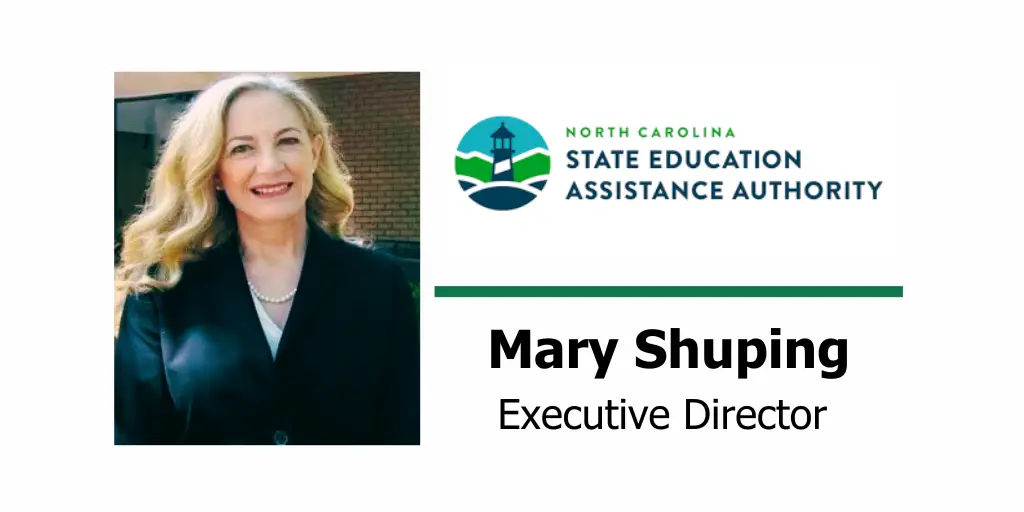Recently, Golden LEAF President, Chief Executive Officer Scott T. Hamilton sat down with Mary Shuping, Executive Director of the North Carolina State Education Assistance Authority (NCSEAA), via Zoom and filmed an episode of Critical Conversations. In this series, Scott talks with professionals about economic development issues affecting the state.
Shuping was named executive director of NCSEAA by UNC-System President Peter Hans on June 1st.
Since 1965, the North Carolina State Education Assistance Authority (NCSEAA) is the state agency that helps North Carolinians pay for education. NCSEAA administers financial aid and savings programs, helps students and families understand how to make paying for college more manageable, and provides resources for education professionals about financial aid.
Shuping shared that NCSEAA administers financial aid programs and state savings programs to provide funding for higher education. She added that NCSEAA provides information to families and education professionals like guidance counselors about what financial aid is available, how to access it, and the college process. NCSEAA also manages North Carolina’s K-12 Opportunity Scholarship Program and the Education Student Accounts (ESA+) program for children with disabilities, explained Shuping.
NCSEAA also administers the Golden LEAF Colleges and Universities Scholarship. Shuping said that NCSEAA manages the application process, selection of the students, and the awarding of funding. She mentioned that NCSEAA often communicates with scholars and shares the opportunity with students in high school. She added that the Golden LEAF Scholarship is a great opportunity for students who are from rural communities to gain an education from a four-year public or private North Carolina college or university and are committed to returning back to a rural community in North Carolina to help build prosperity and impact the region. The applications for the 2026 – 2027 school year open in January.
The Free Application for Federal Student Aid (FAFSA) form is mandatory to apply for almost all grants, scholarships, work-study funds, and loans for college, career/trade school, or graduate school, said Shuping. The FAFSA opened on September 24th and is available through CFNC.org or on the U.S. Department of Education website with resources to aid students and families in filling out the forms.
The College for North Carolina (CFNC) is a free service of the State of North Carolina that helps students plan, apply, and pay for college, shared Shuping. The North Carolina State Education Assistance Authority is the primary sponsor of CFNC in partnership with the NC Department of Public Instruction, the NC Community College System, the UNC System, the NC Independent Colleges and Universities, and College Foundation, Inc. CFNC.org is where you will find many of the resources needed to apply for college and scholarships to help you attend college. CFNC also has regional representatives that come to schools to talk about these resources with students, counselors, PTA groups, and others. One of the main function of CFNC is to create campaigns and awareness around the importance of completing the FAFSA, a college application, and how to fund higher education.
Click the links to learn more about NCSEAA, CFNC, and the Golden LEAF Scholarship.

